From summer escapes to weekend retreats, pools have become one of the most sought-after features on Airbnb – and one of the most misunderstood when it comes to safety and liability. Whether you’re a new host listing your first property or a seasoned Superhost managing multiple stays, understanding how to keep your pool compliant, insured, and guest-ready is essential. This guide breaks down everything you need to know – from Airbnb pool rules and federal regulations to practical hosting tips – to help you create a safe, compliant, and five-star guest experience.
Pools are one of the most searched amenities on Airbnb – in 2023 alone, U.S. searches for stays with pools jumped 31%. But with higher bookings come higher risks.
That’s why Airbnb, in partnership with Safe Kids Worldwide and Life Saver Pool Fence, launched a multiyear campaign to promote host awareness and water-safety standards. Yet beyond Airbnb’s own safety guidelines, the real responsibility rests on hosts to protect their guests – and their own liability.
This guide combines expert insights from Airbnb, the Consumer Product Safety Commission (CPSC), Proper Insurance, and leading host advisors to give you the definitive playbook on Airbnb pool rules and short-term rental safety compliance.
If your Airbnb has a pool, you are legally responsible for guest safety. Whether your pool is private, shared, or part of a short-term rental complex, liability can apply under both local regulations and federal safety standards like the Virginia Graeme Baker Pool & Spa Safety Act (VGB Act).
Hosting a pool means balancing guest enjoyment with safety compliance. Negligence, failing to provide reasonable safety measures can result in devastating consequences, both personally and financially.
According to Proper Insurance, which underwrites short-term rental properties in all 50 states:
Airbnb now also provides in-app water safety guidance for both hosts and guests, including checklists, automatic message prompts, and local hazard alerts.
Case Study:
In 2022, a Florida Airbnb host and the platform itself faced a $1.3M settlement after a 16-year-old drowned in a pool without a safety line or depth markers. The court ruled that lack of clear safety labeling contributed to negligence.
Here’s a unified list of 10 must-have Airbnb pool rules, integrating best practices from Airbnb, Proper Insurance, and Host Tools:
Set clear hours (e.g., 8 a.m.–10 p.m.) to limit risk and maintain neighborhood peace. Quiet hours (e.g., 9 p.m.–8 a.m.) respect local ordinances and prevent guest conflicts.
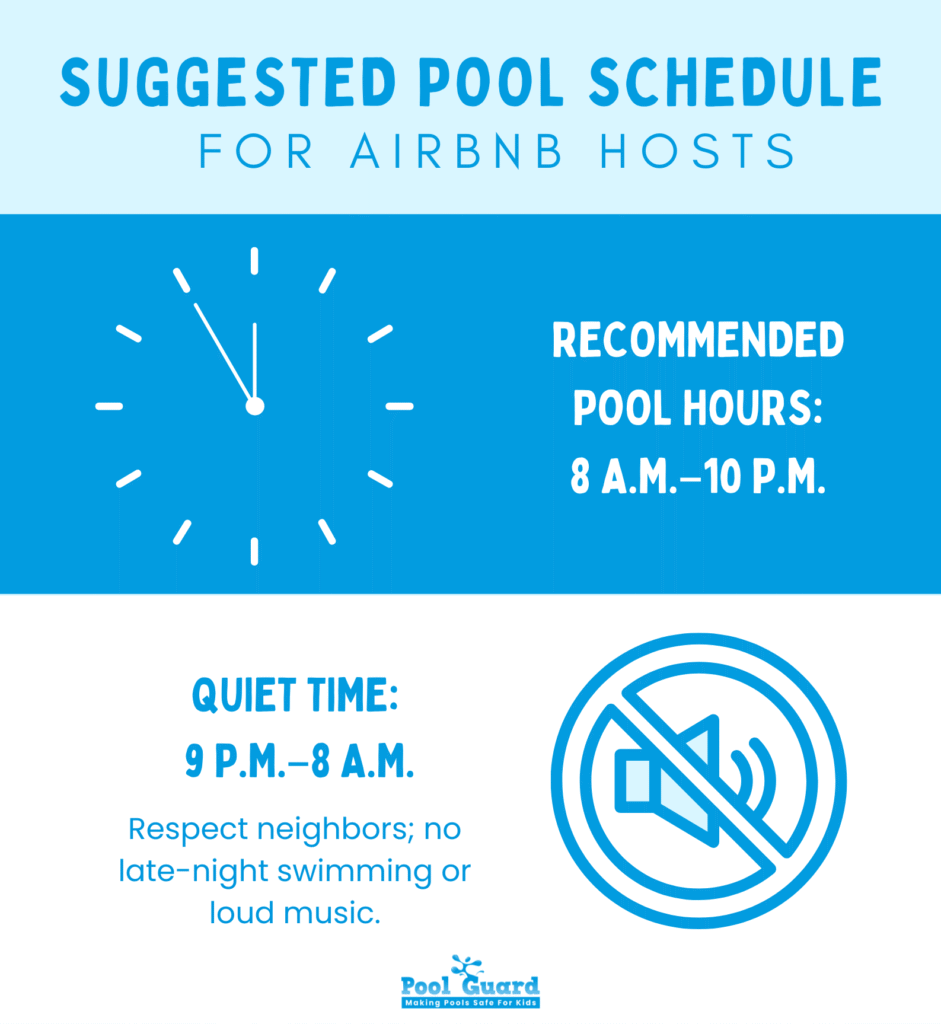
All children must be actively supervised by an adult at all times. For kids under 12, require life jackets or Coast Guard–approved flotation devices – not pool noodles or inflatable toys.

Glass can shatter and cause severe injuries. Encourage guests to use plastic or metal tumblers, and outline cleaning fees if glassware is found near the pool.

Tell guests when cleaning occurs and who to contact for issues like temperature or pump malfunctions. Transparency builds trust and reduces misunderstandings.
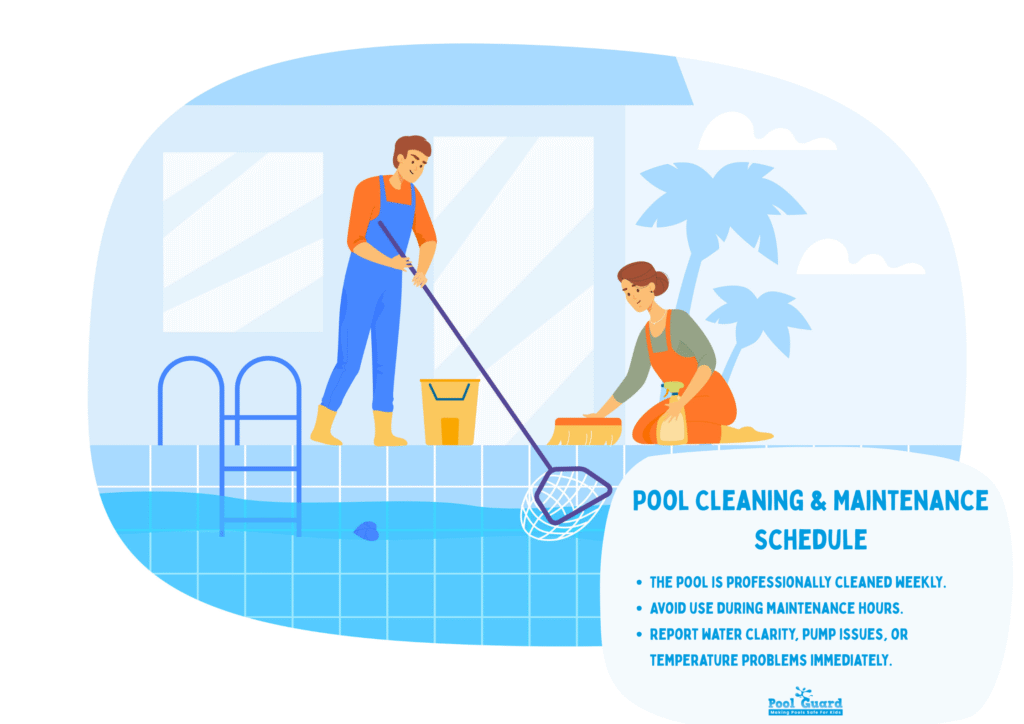
Prohibit diving, pushing, or running near the pool. If your pool has shallow ends or uneven depths, mark them clearly and communicate this in your house manual.
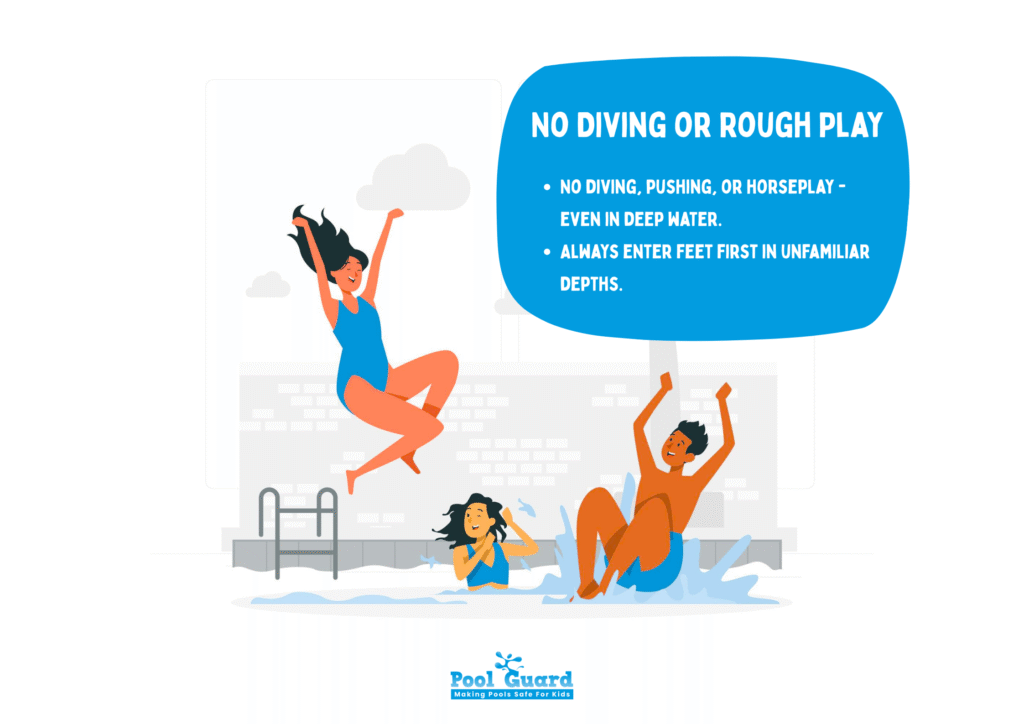
Before check-in, have guests sign a digital pool waiver covering:
This not only clarifies expectations but also strengthens your insurance defense if an incident occurs.
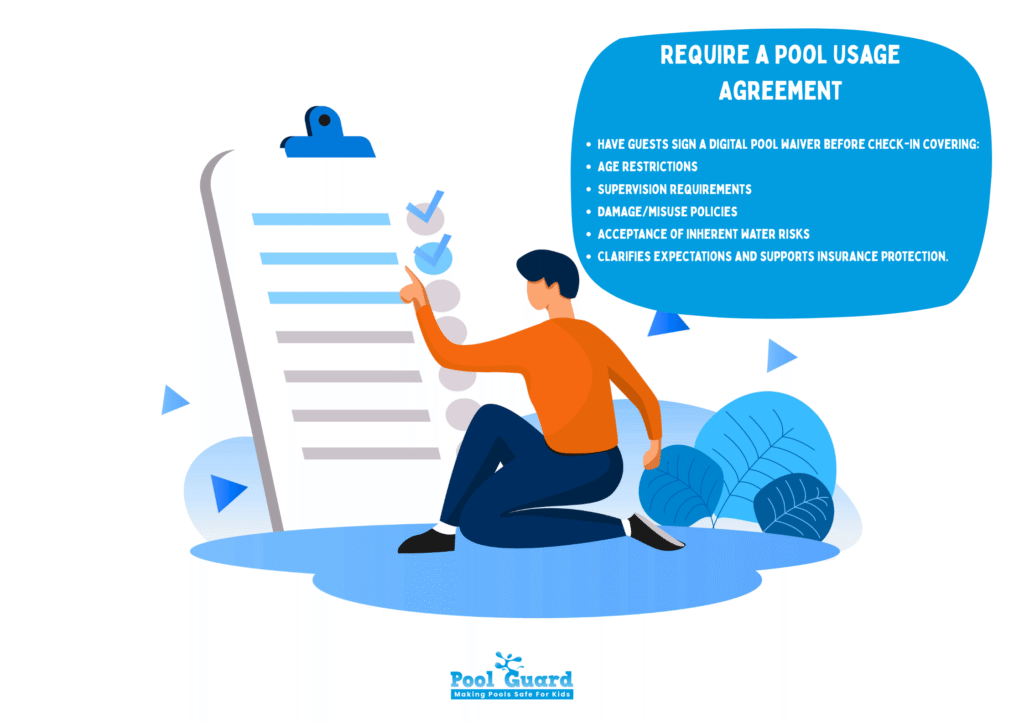
Clarify that guests are responsible for towels, sunscreen, and valuables left poolside. Provide outdoor storage bins to prevent clutter and protect belongings.
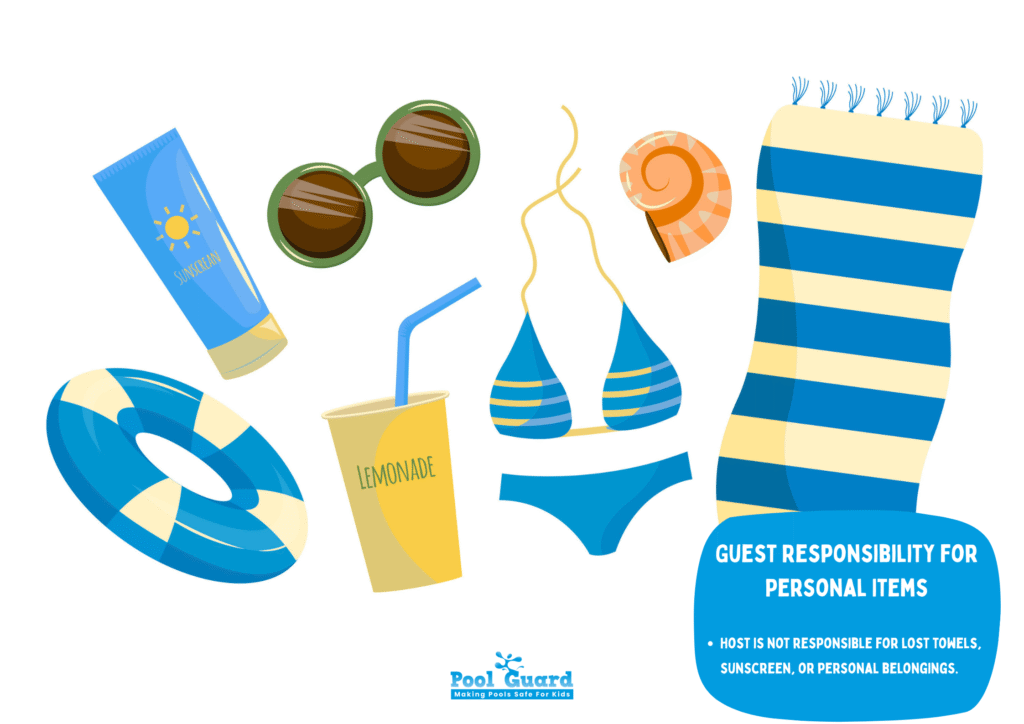
Set rules for what’s allowed:
✅ Pool noodles, soft inflatables
❌ Large rafts or hard plastic toys (visibility hazard)
❌ Diving boards or slides (major liability risks)
Insurance note: Many underwriters require removal of slides and diving boards to maintain coverage.
Install and label:
Include pool rules in your house manual and Airbnb listing. State that violations may lead to:
Consistency in enforcement shows that you value safety and accountability.
Use waterproof, easy-to-read signs for:
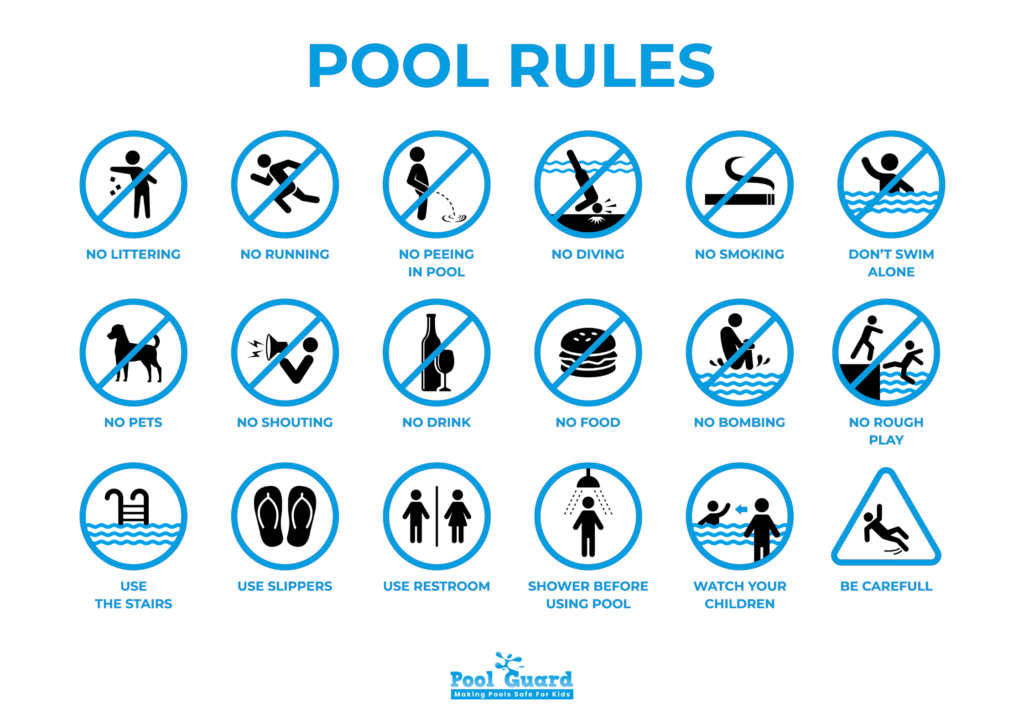
Add them to your Airbnb listing, welcome binder, and digital check-in message.
Airbnb now allows automated water safety prompts – use these to confirm guest acknowledgment before arrival.
Weekly checks should include:
Monthly checks: verify documentation and replace any worn safety signage.
Pro Tip: Add these inspections to your cleaning company’s checklist. Documentation shows diligence if a claim arises.
A safe pool doesn’t just protect – it builds confidence. Guests are far more likely to book (and review positively) when they:
Stat: Airbnb searches for “listings with pools” rose 31% year-over-year (2023) – but listings that explicitly highlight pool safety measures enjoy 22% higher conversion rates.
To boost your overall host safety profile:
These details improve guest experience and signal trustworthiness to Airbnb’s algorithm – helping your listing rank higher.
| Category | Recommendation | Why It Matters |
| Safety Barriers | Install fencing, covers, and alarms | Prevents unsupervised access |
| Transparency | Disclose safety features and risks in listings | Builds trust and reduces liability |
| Education | Provide Safe Kids Worldwide checklist | Enhances awareness for families |
| Maintenance Logs | Keep cleaning and inspection records | Useful in case of insurance claims |
| Signage | Use pictogram-based signs | Helps international guests understand quickly |
Airbnb’s partnerships with Safe Kids Worldwide and Life Saver Pool Fence show a long-term focus on drowning prevention.
Meanwhile, insurers like Proper Insurance have made pool safety compliance an underwriting requirement, signaling a shift toward shared responsibility between hosts and platforms.
Quote:
“When pool safety becomes standard, not optional, we save lives – and protect livelihoods.”
– Torine Creppy, President, Safe Kids Worldwide
In 2025, pool safety isn’t optional, it’s a sign of professionalism. Having a pool makes your listing stand out – but responsibility makes it last.
By following these Airbnb pool rules and safety best practices, you’ll:
Share this guide to help other hosts build safer, smarter, and more responsible short-term rentals or bookmark it as part of your Airbnb safety checklist.
Guests remember safe, transparent experiences.
Regulators notice negligence.
Smart hosts choose prevention.
Please fill out the form below with your information. Your local dealer will be notified about your inquiry.
Please fill out the form below with your information. Your local dealer will be notified about your inquiry.